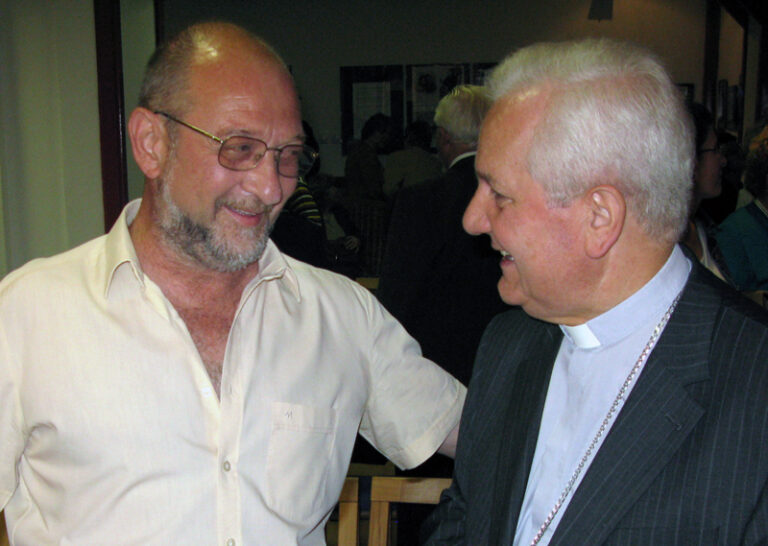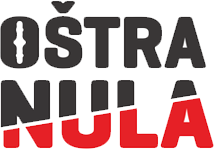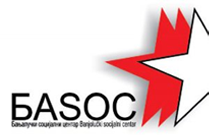On January 7, it will have been ten years since we lost our colleague, friend, and journalist, Slavko Podgorelec. Although born in Zagreb, he loved Banja Luka the most, dedicating a significant part of his work to it—researching its history, hosting the radio show “Medallions in Time,” and writing books.
Slavko enjoyed company and socializing, often with a drink in hand. Perhaps that is why the first story in his book “A Trip to Banja Luka” contains an unpublished letter by Father Franz Pfanner, the founder of the Trappist monastery in Banja Luka. This story best illustrates the mentality not only of the people of Banja Luka but also of Bosnians and Herzegovinians, which, it seems, has not changed much to this day.
Once, rakija (brandy) was the main drink of choice, while today, many other alcoholic beverages are in circulation, yet they still hold an important place in people’s lives. Although more than 150 years have passed since the Trappists arrived in Banja Luka, taverns and alcohol remain a dominant part of social life. Business and politics are discussed in taverns, marriages are arranged, people gather after funerals, celebrate graduations, and mark many other important moments.
The Lost Letter of Father Franz Pfanner
“Father Franz Pfanner was the founder and prior of the ‘Maria Stern’ (Marija Zvijezda) monastery, established in 1869 in the village of Delibašino Selo near Banja Luka. Within a decade, this monastery laid the foundations for Banja Luka’s modern industrial and agricultural development by building a brewery, textile and pasta factories, metal and wood processing plants, and introducing the latest agricultural machinery. Its most famous product was the world-renowned ‘Trappist’ cheese, which was considered a delicacy served at the Viennese court and across Europe. After 14 years at ‘Maria Stern,’ in 1883, Father Franz Pfanner left for Transvaal (South Africa), where he founded the ‘Marianhill’ monastery following the same model and standards as the one in Banja Luka. Father Franz was later buried there.”
Monastery Maria Stern, March 18, 1873 AD
Dear Brother in Christ, Ivan,
I send this epistle in the saddlebags of the Austrian consul Stanislav Dragančić’s diplomatic post from Banja Luka, which, with the help of the Almighty to whom I pray for your health, will reach Mariawald.
It has been nearly four years since we, the Cistercians, founded our monastery here in Turkey in June of the Year of Our Lord 1869, after unsuccessful attempts to do so in Austria, Croatia, and Hungary.
To tell the truth, we are an hour’s walk north of the city toward the Sava River, but this has its advantages. The Turks are lazy, so when they decide to deny us certain rights or harm us, we learn of it in time and can preempt their actions. The city, which I visit only when necessary, is Turkish but has some European characteristics.
Despite the Sultan’s approval allowing Christians to freely purchase land here, and despite the flourishing trade—led by the Orthodox merchant Tomo Radulović—we struggled greatly to purchase around 100 acres from the said Radulović.
At first, he demanded three thousand ducats for land on the right bank of the Vrbas River (with 400 oak trees and 400 plum trees). Brother Ivan, you know my persistence: we bargained, with the consul’s help, until midnight—until Mr. Tomo, may the Almighty grant him every grace, finally lowered the price to 1,400 ducats.
I must also mention that on the purchased land, I marked all the trees with my sign in the presence of the consul and local Catholic peasants: Ilija and Nikola Bilić, and Mijat Janić. (Do not forget to return to those underlined 400 plum trees!) Only God knows what we endured in establishing the monastery on this barren meadow!
Yet, despite the initial hostility of the local population (Muslims, Orthodox, and—may God forgive them—even Catholics), our consistent practice of our Order’s motto “Ora et labora!” (“Pray and work”), our moderation in food, and our daily silence have, thank God, earned us general respect—not only from the simple peasants (regardless of their faith) but also from the official authorities.
Now they look upon us as “dervishes,” members of Muslim sects who enjoy great prestige. We built the monastery, but we were not allowed to ring bells.
Last year, in the spring of AD 1872, a great drought struck here. For months, not a drop of rain fell. The Turkish authorities issued an order requiring all religious communities (Muslims, Christians, and Jews) to pray for rain according to their own rites.
I saw an opportunity then to inform the Pasha of Banja Luka that we, the Trappists, were also willing to pray to God for rain—but we would need to ring our bells.
The Turks believed us to be devout “dervishes” who enjoyed special divine favor. By decree, we were allowed to use our bells “until the rain falls.” And the merciful God (was it truly because of our bells?) sent rain to the earth.
To be fair—the Trappists were the last to join the prayers, so both the people and the authorities became convinced that it was our bells that had summoned the rain.
Even the Muslims came to the monastery afterward, bowed to us, and shouted “Mashallah!” This is a sign of admiration and, in Turkish, means “When God wills it, so it shall be!”
We continued ringing the bells long after that, and they no longer objected.
Now, Brother Ivan, let me explain the matter of the plums. When I arrived in this region in the spring of AD 1869, I noticed something I had never seen anywhere before. Here, everyone drinks, which is the mildest way to describe their indulgence in rakija (brandy), which results in their constant intoxication with this devilish elixir.
The Turks drink, the peasants drink, the Catholics and Orthodox drink equally fervently, and I have even seen priests (from all three faiths—may God forgive them!) indulging in this filth.
Their faces are the color of earth from drinking rakija, their eyes barely visible through swollen eyelids, and it is almost impossible to meet a man walking straight without staggering.
The Turkish beys manage somewhat (as they do not walk but ride horses), but the laborers can work for at most an hour or two before collapsing into a ditch (if they are digging one). Or, after bumping into trees they were meant to cut down, they simply pass out from the rakija.
It is a great misfortune, for they cultivate plums exclusively to distill brandy. And they do so in a way unknown to the rest of the world—managing to extract twenty liters of poison from ten kilograms of fermented fruit, which no living soul anywhere else would dare to taste.
Yet they drink it instead of water, claiming that water causes kidney disease, tooth loss, and gout.
Seeing this misery and ruin, I decided to teach these wretches that plums can be dried and made into a nourishing winter compote. Trappists have always dried fruit, so I offered the villagers a taste. And they were amazed.
To restrict their access to plums, last year I built a drying facility with my brothers. Then, I offered a good price, bought up the fruit, filled the drying facility, and before last Christmas, I distributed dried fruit for free to the common folk and peasants, regardless of their faith.
I believed their eyes would be opened: they took the money (and lost their plums) and then received those same dried plums back. I expected that this year they would start drying plums themselves since I had announced that I would buy all the surplus.
No one was happier than I when, last October and November, I saw that distillation was happening in only two or three places across the whole region. These poor souls had sold almost their entire harvest for our drying facility.
New Year came and went, January arrived, snow buried the whole region, and we barely managed to clear the path to the monastery.
Then my plan collapsed. I should rather say—may the Almighty forgive me—that it would have been better if the heavens had broken open and another Great Flood had come! I cursed silently, and now I continue with my pen.
To be brief: one day, a large delegation arrived at the monastery, bringing gifts. Some brought milk, some chickens, some drove a few sheep, and they carried huge freshly baked loaves of bread. They all sang (more like howled like wolves), and—dear Brother Ivan—all of them were so drunk they could not be any drunker!
With folded hands, I began to pray, but the oldest among them stepped forward to kiss my hand—only to fall face-first into the snow in his drunken stupor. I bent to lift him, and he, lying blissfully, began to speak:
“May God bless Father Vranja and all the fathers, and this monastery, and all your monasteries, and all the Trappists wherever they may be! Before you, holy fathers, came, we poor wretches would distill rakija in the autumn, drink it all by Christmas, and then spend the whole winter with dry throats in sorrow. But when you enlightened us that plums could be dried, the heavens opened for us! May God grant you health and happiness, for now, even in the middle of winter, we can distill rakija from dried plums! And it is even better, reverend father, than the fresh autumn rakija. Ilija, hand our most merciful and learned Father Vranja the flask so he, too, may partake of this blessed spirit from his dried plums!”
I clenched my teeth, Brother Ivan, so that I would not utter a curse! I fled from the godless who, may God forgive them, are capable of making brandy even from dry wood!
I spent the entire day and night in prayer and penance, without a crumb of bread or a drop of water, all the while flagellating myself until I bled! The brothers prayed with me, and some could not hold back their tears as I whipped my sinful body. The Almighty is my witness that not even in my dreams did I imagine that my benevolent intention would turn into blasphemy.
In the end, all I could do was declare that I would not allow anyone who drinks to enter the monastery. We would not confess or give communion to drunkards, nor allow them into the church. Oh, if only you had seen our misery then!
For weeks, we held Mass in an almost empty church. I won’t even speak of communions. We turned a blind eye at baptisms, and we administered the last rites in the homes of the dying—but there, we could not influence the household members, who could not imagine death, just like birth and baptism, without brandy.
For consolation, and in the end: by late February, the situation began to improve. The church was nearly full at Sunday Mass. They prayed with deep repentance, confessed, and received communion—and then impatiently rushed outside the monastery, to the fields, where they began drinking. Men and women alike, without distinction, and so it went on until sunset (if there was any).
I would gladly flee to Africa, to the missions, but I have not yet fulfilled my vow—to make this monastery a beacon of industrial renewal and general economic and cultural progress for this part of Turkey. The Almighty, through our prayers, will ensure that things do not remain this way forever.
May this epistle, dearest Brother in Christ Ivan, find you in good health. Pray for us who are here in this dark corner of the Balkans. Pray that the Almighty sustains us in Faith, Hope, and Love so that we may persevere on our cruciform path! Pray also for these unfortunate souls who, apart from God, believe only in brandy…
Your brother in Christ,
Franjo



